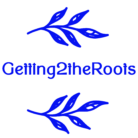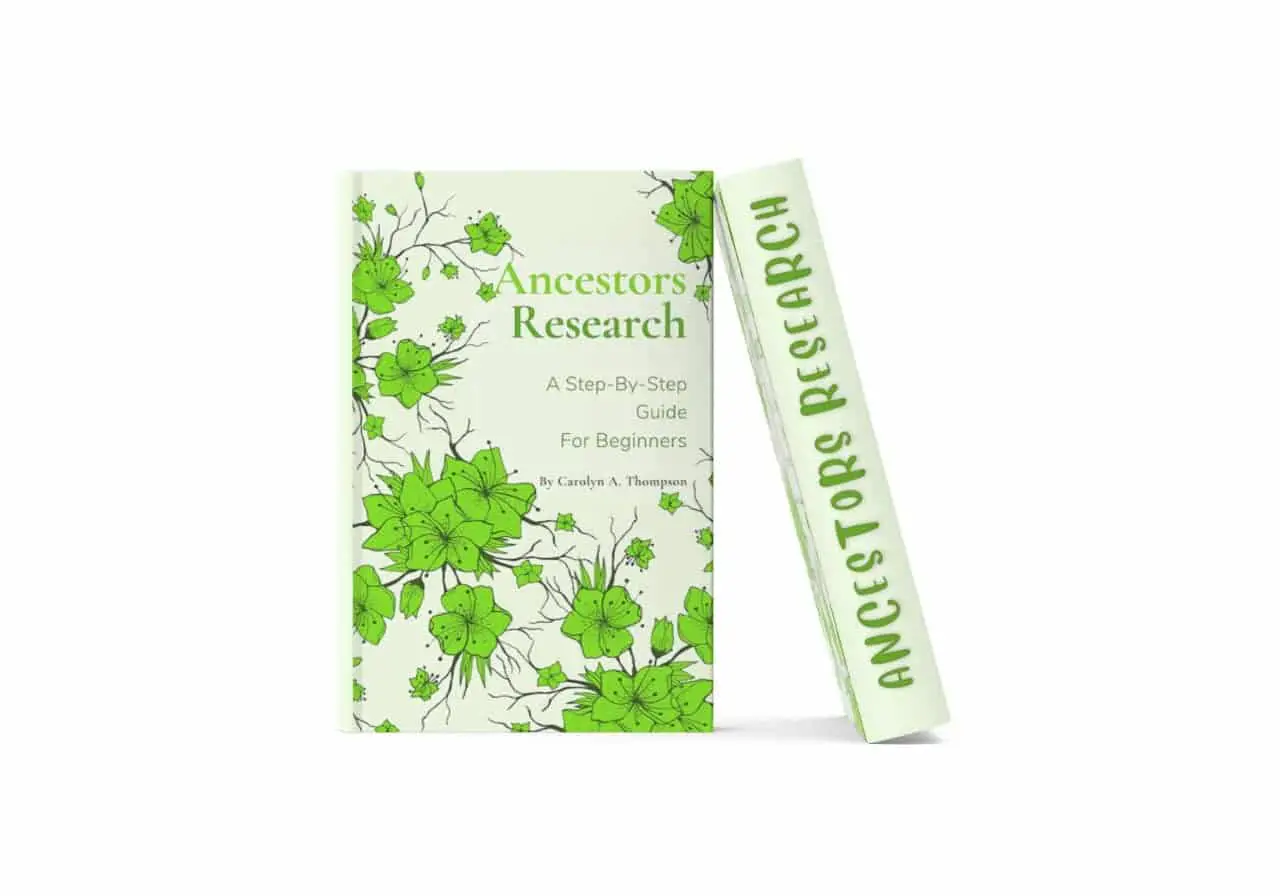Understanding the cost of genealogy research is crucial for enthusiasts diving into their family history.
This pursuit of ancestry, which has captivated many for centuries, is more than a pastime—it’s a blend of science and detective work.
As you embark on this journey, you’ll not only uncover fascinating family narratives and ancestral insights but also forge a deep sense of identity.
Furthermore, this article breaks the silence on the financial aspect, offering guidance on the costs of do-it-yourself research compared to hiring professional services.
It also highlights what to expect in terms of investment when engaging a professional genealogist.
This article will delve into the cost of genealogy research and the price of engaging a professional.
It provides a roadmap for what services to anticipate and the expected duration to piece together your family’s history.
First, for a comprehensive understanding, dive into our Ancestors’ Research | Free Beginner’s Guide and explore Best ‘Uncovering Your Root: Best Devices for Genealogy Research for top-notch tools to aid your journey.
Understanding the Cost of Genealogy Research
Begin with Budget-Friendly Genealogy
Embarking on genealogy research doesn’t necessarily mean emptying your pockets. Initiating your ancestral search with free resources like FamilySearch can provide a solid foundation without a price tag.
This platform, alongside others, offers access to extensive databases of historical records, family tree builders, and community support forums—all at no cost.
Leveraging local libraries and archives can further enrich your search. Many libraries offer free access to genealogy research databases and historical documents.
In addition, librarians can be invaluable guides, helping you navigate through a treasure trove of local historical and genealogical records.
As you progress in your genealogy journey, broadening your resources may become essential. This is where subscription-based services come into play.
Platforms like Ancestry and MyHeritage are popular choices, offering more advanced tools and larger collections of international records.
Here’s a breakdown of potential costs you may encounter:
- With a range of subscriptions, the cost can vary.
- A U.S. Discovery membership starts at around $99 for six months.
- While a World Explorer membership can be closer to $149 for the same period.
- Annual costs would double these amounts.
- But remember, sales and discount offers can reduce these prices significantly.
- Offers a similar structure, with its basic subscription starting at around $129 annually.
- They also provide advanced features such as DNA matching.
- And smart matching technology, which can help link you to potential relatives.
- Geared more towards UK and Irish records
- Subscriptions can start at $129 per year.
Remember, these services often offer tiered pricing to better fit your research needs and budget.
It’s essential to compare what each tier offers in terms of access to international records, DNA testing, and other specialized services.
Another point to consider is the opportunity to benefit from trial offers. Many services provide free trials or have free access to events throughout the year.
Which can give you a glimpse into what they offer and how it can aid your research before any financial commitment.
The cost-effectiveness of your genealogy research will hinge on your objectives.
If your goal is to build a detailed family tree that spans multiple countries or regions, a subscription to a global database might be necessary.
However, if your focus is more localized or you are just starting, then less expensive options or a combination of free and paid resources could be sufficient.
Here are some additional points to help you manage your genealogy expenses effectively:
Utilize Free Trials and Offers
Before committing to a subscription, take advantage of free trials. These periods allow you to assess the value of a service’s offerings relative to your research needs.
Keep an eye out for special promotions or discounts during holidays and events like National Genealogy Day.

Join Genealogy Groups
Online forums and local genealogy groups are great resources for sharing tips and finding out about cost-saving strategies.
Experienced genealogists can offer advice on how to get the most out of subscription services and may know of upcoming deals or alternative resources.
Combine Paid and Free Resources
Don’t overlook the value of combining paid subscriptions with free resources.
For example, while Ancestry or MyHeritage can give you access to extensive global records, free sites like FamilySearch or local historical societies can complement these findings with unique documents and personal assistance.
Track Your Expenditures
Maintain a log of your genealogy-related expenses. This can include subscriptions, DNA tests, travel costs, and any other investments.
Tracking helps you stay within your budget and evaluate the cost-benefit ratio of your research activities.
Prioritize Your Research Goals
Determine what aspects of your genealogy research are most important to you and allocate your budget accordingly.
For instance, if DNA testing is a priority, you may choose to allocate more funds towards that and use free resources for other aspects of your research.
By following these tips and being strategic about your resource choices, you can make genealogy an affordable and rewarding hobby.
Remember, the journey of discovering your ancestry is not a race—it’s a personal exploration that can be tailored to fit your financial situation.
Making an Informed Choice on DNA Tests
To navigate the cost of genealogy research effectively, selecting the appropriate DNA test is paramount.
- FamilyTreeDNA: This platform offers a budget-friendly avenue for genealogists focusing on paternal and maternal ancestries through Y-DNA and mtDNA tests. It’s especially beneficial for those aiming to delve into a specific lineage.
- Living DNA: Pioneers of the ‘3-in-1’ DNA test, Living DNA provides a comprehensive overview, including autosomal, mtDNA, and Y-DNA (for males), at a competitive rate, making it ideal for a broad ancestral picture.
- Ancestry: Boasting a vast database, Ancestry excels in integrating DNA insights with family trees and historical records, offering various price points and frequent discounts to fit diverse budgets.
- MyHeritage: Offers a user-friendly interface and access to a wide international database, which is key for those with ancestors from various global locations. MyHeritage DNA is also known for competitive pricing and occasional special offers.
- SelfDecode: Venturing into the health aspect, SelfDecode provides personalized health reports alongside ancestral data, appealing to users who want to combine health and ancestry research. While it may have a higher upfront cost, the value is in the detailed health insights it offers.
When choosing a DNA test, consider your primary research goals, the depth of the ancestral data provided, and how it aligns with your budget. It’s also wise to stay alert for special deals that can substantially reduce costs.
Timing Your DNA Testing for Cost Efficiency
To optimize the cost of genealogy research, consider the timing of your DNA test purchase.
Major savings are frequently available during special sales periods, such as holiday sales or National DNA Day, making it an ideal time to buy.
Understanding DNA Results Within Your Budget
Post-testing, companies offer user-friendly tools and resources to help you interpret your ethnic mix and discover potential relatives.
Most services also provide tutorials and customer support to help you make the most of your DNA results without incurring additional costs.
Balancing Privacy with Cost in DNA Testing
Before investing in a test, review the privacy policy of the DNA testing company carefully.
Affordable genealogy research should not compromise the security of your genetic information.
Look for services that ensure the confidentiality and protection of your data while still being cost-conscious.
Incorporating DNA testing into your genealogy research strategy can be a cost-effective way to substantiate your ancestry and open new paths to discovery.
Be sure to take advantage of deals to maximize value, and select a testing option that fits both your research objectives and budget.
Incorporating Travel and Associated Costs
Embarking on a genealogical journey to your family’s historical sites necessitates wise budgeting for travel expenses.
Utilize Booking.com to find accommodations that fit your financial plan and compare airfares with CheapOair.com and CheapAir.com to secure economical flights.
For affordable U.S. travel options, Greyhound Lines offers extensive bus routes. Keep an eye on Cheapflightsfares for potential deals, and consider JetBlue Travel or TripAdvisor for all-encompassing travel arrangements.
Selecting Accommodations for Your Genealogical Journey
When planning multi-day genealogical explorations, lodging is a key aspect of the overall budget. Selecting the right hotel can enhance your travel experience, providing comfort after a long day of research.
Here’s why the following hotels are excellent choices:
Best Western: Known for its wide availability and reliable service, Best Western offers comfortable accommodations at competitive prices. Many of their locations are conveniently situated near archives and historical sites, making it easier to plan your itinerary.
IHG Hotels & Resorts: This global chain provides a range of options, from luxurious to budget-friendly. IHG Rewards can lead to significant savings, especially for those who travel frequently for genealogical research.
Hilton Hotels: With Hilton, you can expect a consistent level of quality and service. Their portfolio includes various brands that cater to different budgets, and they often have special offers for extended stays, which can be beneficial for long research trips.

Radisson: Radisson hotels are renowned for their customer service and pleasant rooms. They offer a rewards program that is beneficial for repeat stays, which can be common for genealogy enthusiasts making multiple trips to the same location.
Consider these hotels not just for their reputable service and comfort but also for their potential to offer special rates, rewards, and convenience to historical sites and archives, ensuring a restorative retreat as you delve into your ancestry.
Planning for Document Retrieval Costs
A crucial aspect of genealogy research is navigating the world of archival records, which frequently come with varying document fees.
As you allocate your budget, it’s crucial to consider these expenses, which can include acquiring vital records such as birth certificates, marriage licenses, and death certificates.
The costs may differ based on the repository, document type, and urgency of the request. It’s advisable to research these fees early on and plan accordingly to integrate them seamlessly into your budget.
Bonus Tip: Verify Record Availability Before Purchase
Doing your homework can save both money and time in genealogy research. Before ordering records, it’s essential to establish when the documentation of certain records began.
This can vary widely, depending on the region and the type of record. For instance, while land records might date back centuries, other documents, such as social security records, may not.
I learned this the hard way when I used the Freedom of Information Act to request social security records, only to discover that the records I sought were from a time before such record-keeping was established.
Similarly, I’ve spent countless hours searching for early birth and other records, which I later found out were not systematically kept until much later.
These experiences underscore the importance of researching the history of record-keeping practices in your area of interest to avoid pursuing documents that may not exist.
Navigating Ancestral Sites with Leading Car Rentals
As you embark on your genealogical journey, consider the efficiency of your daily travel. Renting a car becomes an integral aspect of the cost of genealogy research when exploring distant family roots.
Companies such as:
Stand out for their reliable service and variety of options to suit your itinerary.
Factoring in the convenience and flexibility of a rental car allows for a more in-depth exploration of your ancestral sites, making it a wise inclusion in your genealogy research budget.
Ensure that your travel plans remain uninterrupted by choosing top car rental services, allowing you to discover the past without the hassle of transportation woes.
Time Management Strategies for Genealogists
For those passionate about genealogy, time is a valuable currency.
Each hour invested in sifting through historical documents, archives, and databases represents a significant commitment to uncovering the intricate threads of your heritage.
To guarantee that this investment reaps substantial rewards of understanding and familial ties, it’s crucial to conduct your research with a strategic, organized approach.
Here are five essential tips to maximize the effectiveness of your time spent on genealogical research:
- Set Specific Goals: Establish clear, focused objectives to guide your research efforts and avoid getting sidetracked.
- Organize Tasks: Segment your work into smaller, more manageable activities to streamline your progress and stay on course.
- Use Time Blocks: Allocate dedicated time slots exclusively for research to improve concentration and facilitate easier time management.
- Digitize Records: Maintain a digital repository of your findings to expedite the research process and safeguard against the loss of information.
- Schedule Breaks: Integrate frequent intervals of rest to prevent burnout, thereby sustaining productivity and enhancing the longevity of your research endeavors.
By implementing these strategies, you can ensure that the time spent tracing your lineage is both effective and fulfilling.

The Price of Professional Genealogy Services
Hiring a professional genealogist can streamline the research process and provide expert insights. Professionals offer a range of services, from document retrieval to comprehensive family history research.
- Hourly Rates: Many genealogists charge by the hour, with rates ranging from $30 to $100 or more, depending on their expertise and location.
- Project Fees: Some professionals may charge a flat rate for a specific project, like tracing your maternal line or locating certain records. Prices for these services can range from a few hundred to several thousand dollars.
- Retainer Fees: For ongoing research, a genealogist may work on a retainer basis, with the costs depending on the complexity and duration of the research.
What Services to Expect
When investing in professional genealogy services, anticipate a suite of offerings tailored to your quest for ancestral knowledge.
Below is a breakdown of standard services, complete with average costs, leveraging the ‘Cost of Genealogy Research’ to guide your budgeting:
Crafting Your Research Blueprint
Expect a professional to provide a meticulously drafted research plan, detailing objectives and prospective sources.
This foundational step can cost between $150 to $300, setting the stage for an efficient genealogical search.
Document Retrieval and Archival Hunts
Securing vital records from numerous archives is pivotal. Professionals typically charge $30 to $75 per document.
It includes retrieval and handling costs, making every unearthed record a valuable piece of your family puzzle.
Analysis and Synthesis of Ancestral Data
A genealogist will dissect and synthesize the data, presenting it in an elaborate report with corroborating documents.
This critical service often ranges from $500 to $2,000, reflecting the complexity of your lineage and the depth of analysis required.
Weaving Together Family Trees
Constructing comprehensive family trees, potentially adorned with personal anecdotes, can cost from $300 to $1,000, offering a visual and narrative depiction of your heritage’s tapestry.
Deciphering DNA’s Secrets
For specialists who integrate DNA analysis, expect additional fees, typically between $100 and $400, to navigate the complexities of genetic genealogy and enrich your family’s story.
Continuous Partnership and Correspondence
Ongoing communication is key. Most genealogists provide regular updates as part of their overall package, but expanded inquiries may incur extra costs, generally billed at $50 to $100 per hour.
The cost of genealogy research encompasses a broad spectrum of services, leading to an investment that can span from several hundred to thousands of dollars.
This range is reflective of the specific depth and complexity inherent in the historical expedition you embark upon.
Timeline Expectations:
The timeline for genealogical research can vary widely. A simple family tree might take a few weeks, while a detailed multi-generational project can take months or even years.
Patience is key in genealogy, as records may be scattered across different sources and not all information is readily available or digitized.
Conclusion
Embarking on the journey of genealogical discovery can be a rewarding experience, but it’s important to enter with open eyes regarding the potential costs.
Budgeting for the various costs will ensure that unexpected financial hardships do not impede the exploration of your roots, whether you decide to do it yourself or hire a professional.
Remember, the time and money invested in uncovering your genealogy are not just for your own benefit but for generations to come, providing a priceless family legacy.
Frequently Asked Questions (FAQ) on Managing the Cost of Genealogy Research
- What initial steps should I take that are cost-effective in genealogy research?
- To manage the cost of genealogy research effectively, start by collecting information available to you through family records and oral histories. Use free resources like FamilySearch to begin constructing your family tree. For more in-depth research, budget for potential subscriptions to genealogy websites.
- What are the typical costs associated with subscription-based genealogy websites?
- The cost of genealogy research using subscription-based websites varies; sites like Ancestry.com or MyHeritage generally range from $100 to $400 per year. Consider your research needs and budget accordingly to access these resources.
- What is the cost of genealogy research involving DNA testing, and is it essential?
- While DNA testing is not essential, it adds depth to the cost of genealogy research. Tests from companies like MyHeritage or FamilyTreeDNA range from $59 to $200, often with discounts available, providing valuable ethnic insights and connecting you with relatives.
- Should I conduct genealogy research myself or incur the cost of hiring a professional?
- Assess if the cost of genealogy research is worth hiring a professional based on your available time, expertise, and level of interest. Self-research may be cost-saving and fulfilling, while professionals can offer more extensive expertise and efficiency.
- How should I proceed if I encounter obstacles that affect the cost of genealogy research?
- If you reach a standstill, review your findings to see if there are ways to minimize the cost of genealogy research. Explore alternative record sources like local newspapers or church records, engage with online genealogy communities, or consider whether the cost of a professional might efficiently overcome the hurdle.


